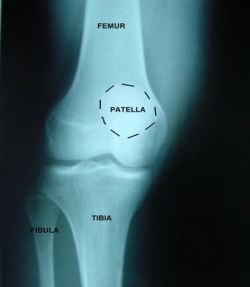Share
Osteoarthritis is a disease affecting more than 50 per cent of people over the age of 65.
Despite its prevalence, relatively little is known about the cause of the cartilage breakdown or the genetic basis of the disease.
Osteoarthritis occurs when the cushioning cartilage surrounding the joints gradually deteriorates, resulting in joint stiffness, instability of the joint and pain.
At present there are no treatments to prevent or reverse disease progression although the nutrient glucosamine, is showing some promise in research studies.
The main treatment options are pain killers to treat symptoms, anti-inflammatory drugs to treat inflammation or surgical joint replacement.
However, two recent studies have revealed the primary enzyme responsible for the degradation of aggrecan, within articular cartilage. This may be the start of new treatment strategies for osteoarthritis.
The proteoglycan aggrecan is one of the major structural components of cartilage and gives cartilage the ability to bear load and resist compression.
Several years ago, analysis of synovial fluid samples demonstrated that cleavage or cutting of the aggrecan protein gene sequence at a particular region was associated with aggrecan degradation and human joint pathologies such as osteoarthritis.
A similar degradation of aggrecan also occurs in response to inflammatory stimuli such as in rheumatoid arthritis.
A family of enzymes called aggrecanases are capable of cleaving aggrecan at this specific region. There are several members of this family, however, these two studies have revealed for the first time that a specific member of this family, called ADAMTS5, is responsible for the degradation of aggrecan that occurs in arthritis.
Studies have shown that mice lacking ADAMTS5 were resistant to arthritis.
These studies are the first to identify a single primary enzyme responsible for the degradation of aggrecan in mouse models of both osteo- and inflammatory arthritis. Lack of this enzyme was shown to protect against the cleavage and subsequent degradation of aggrecan, and therefore prevent the onset of arthritis, revealing a prime target for therapeutic intervention.
Human studies are yet to commence but this is very exciting news for our children!

